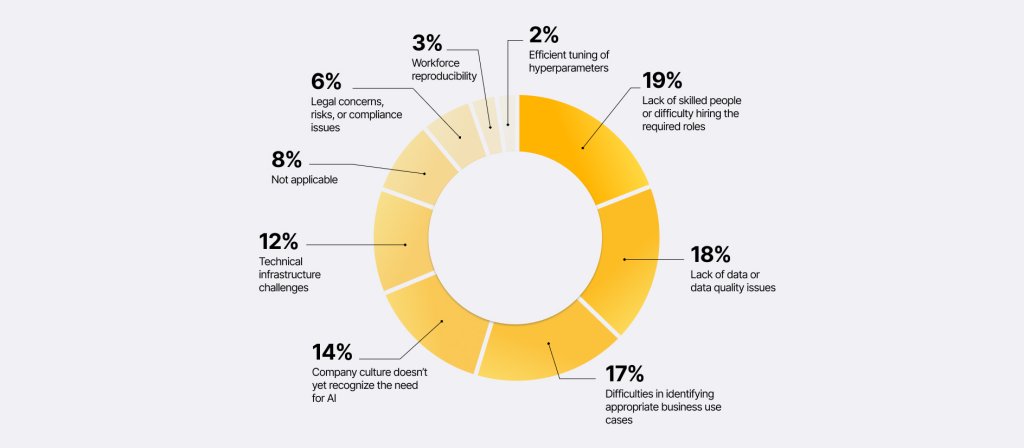
Introduction
The healthcare industry is constantly striving to improve patient outcomes and save lives through innovation. In recent years, a significant shift towards integrating artificial intelligence (AI) into medical research and healthcare delivery has taken place. This rapidly evolving field of AI-driven medical research is revolutionizing healthcare practices, enabling faster and more accurate diagnoses, personalized treatments, and drug discoveries. In this blog, we will explore the various AI tools and technologies that are accelerating medical research and driving healthcare innovations.
- AI-Enhanced Medical Imaging
AI has made a profound impact on medical imaging technologies. AI algorithms can analyze medical images like X-rays, MRIs, and CT scans quickly and accurately. By assisting radiologists in detecting diseases and abnormalities, AI aids in early diagnosis and treatment planning, reducing the chances of misdiagnoses and saving valuable time.
- Predictive Analytics for Disease Prevention
AI’s predictive analytics capabilities are invaluable in disease prevention. By analyzing vast patient data and identifying patterns, AI can predict an individual’s likelihood of developing certain diseases. Healthcare providers can then take proactive measures, offer personalized preventive care, and encourage healthier lifestyle choices.
- Drug Discovery and Development
AI tools, such as machine learning algorithms, have dramatically accelerated the drug discovery and development process. By analyzing massive datasets, AI identifies potential drug candidates, leading to quicker drug development and faster access to life-saving medications.
- Personalized Treatment Plans
AI-driven personalized medicine is transforming treatment plans. By considering a patient’s genetic makeup, medical history, and lifestyle, AI algorithms can suggest tailored treatment options, resulting in more effective outcomes and reduced adverse effects.
- Virtual Health Assistants
AI-powered virtual health assistants are revolutionizing patient interactions with healthcare providers. These assistants can handle routine inquiries, schedule appointments, and monitor patient conditions remotely, improving patient satisfaction and optimizing healthcare professionals’ time.
- Enhancing Clinical Trials
AI technologies optimize clinical trial design by identifying suitable candidates, predicting patient responses, and monitoring trial progress effectively. This optimization leads to quicker trials and faster access to potential life-saving treatments.
Conclusion
The integration of AI tools into medical research and healthcare innovations is transforming the field and accelerating advancements at an unprecedented rate. From improving medical imaging and enabling predictive analytics to transforming drug discovery and personalizing treatment plans, AI is reshaping the way healthcare is delivered. Responsible and ethical use of AI will be crucial as we work towards a future where AI-driven healthcare innovations become the norm, benefiting patients worldwide. The symbiosis between AI and medical research holds the potential to unlock new frontiers in healthcare, offering hope for a healthier and more prosperous future.
Why is healthcare ripe for disruption?

The healthcare industry is poised for disruption due to a convergence of various factors. Escalating healthcare costs have emerged as a pressing issue, limiting the accessibility of quality care for a large portion of the population. Meanwhile, the rapid progress in technology, particularly in areas such as artificial intelligence (AI), big data analytics, and telemedicine, has unlocked novel possibilities for revolutionizing healthcare delivery. Inefficient systems and fragmented workflows in the industry have prompted a demand for streamlined processes and enhanced collaboration among stakeholders. Patients’ growing preference for personalized, patient-centric care has created an impetus for disruptive solutions to cater to individual needs through data-driven insights. Emphasizing preventive care has become essential, and disruptive approaches can focus on early interventions to foster long-term improvements in health outcomes. Additionally, global health challenges, evolving consumer expectations, regulatory changes, and the abundance of healthcare data together form a conducive environment for disruptive innovation within the healthcare sector. By harnessing these opportunities, pioneering solutions have the potential to enhance healthcare accessibility, affordability, and quality, benefiting both patients and healthcare providers.
What changes has AI already brought to the healthcare industry?
AI has brought about transformative changes in the healthcare industry, impacting various aspects of healthcare delivery and research. Notably, AI-powered medical imaging tools have significantly improved diagnostic accuracy by detecting abnormalities and early signs of diseases with exceptional precision. Additionally, AI-driven analytics have facilitated the creation of personalized treatment plans through the analysis of extensive patient data, leading to improved outcomes and reduced adverse effects. Furthermore, AI has accelerated drug discovery processes by predicting the effectiveness of potential drug candidates, expediting the introduction of new medications. Virtual health assistants and chatbots, powered by AI, provide round-the-clock support to patients, while predictive analytics enable the identification of high-risk individuals for early intervention and disease prevention. Moreover, AI streamlines administrative tasks, facilitates remote patient monitoring and telemedicine, and enhances fraud detection and security. Overall, the integration of AI into healthcare has profoundly impacted the industry, with ongoing developments promising even more transformative advancements in the future.
What are the barriers or hurdles for AI in healthcare?

The integration of AI in healthcare faces several barriers and hurdles that need to be addressed. One significant challenge is ensuring data privacy and security, as healthcare deals with sensitive patient information that must be safeguarded from breaches and unauthorized access. Additionally, the lack of interoperability among different healthcare systems and data sources poses a major obstacle. Integrating AI technologies into existing infrastructures can be complex and time-consuming, and the absence of standardized data formats and protocols hinders the seamless exchange of information. Regulatory complexities are also a concern, as AI applications in healthcare must comply with strict standards, potentially slowing down innovation and implementation. Moreover, there is a need for clear guidelines regarding liability and responsibility when utilizing AI in medical decision-making. Gaining trust and acceptance among healthcare professionals and patients is vital, as some practitioners may be hesitant to rely on AI systems, fearing potential errors or the replacement of human expertise. Addressing these barriers is essential to fully unlock the potential of AI in healthcare and achieve improved patient outcomes and experiences.
Thanks,






Leave a Reply
You must be logged in to post a comment.